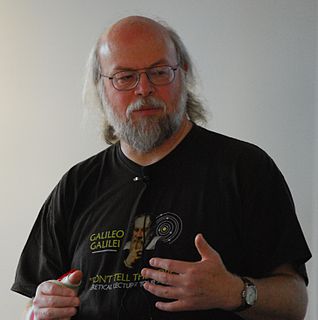A Quote by Miguel de Icaza
I was interested in Java the beginning, but the problem with Java is you do have to switch your platform.
Quote Topics
Related Quotes
All of us who attended the meeting - including Microsoft - unanimously agreed that unilaterally extending the Java programming language would hurt compatibility among Java tools and programs, would injure other tools vendors and would damage customers' ability to run a Java-based software product on whatever platform they wished.
I fear - as far as I can tell - that most undergraduate degrees in computer science these days are basically Java vocational training. I've heard complaints from even mighty Stanford University with its illustrious faculty that basically the undergraduate computer science program is little more than Java certification.
I believe strongly that a group's potential is eventually limited by the strength of its leadership. I'm an outsider, but it still looks to me like the leadership in the Java w orld is Fouled Up Beyond ALL Recognition. Java ISVs don't know whether to listen to Mom or Dad. Everybody knows IBM should just buy Sun and clean up the mess. When are they going to do it?
When you choose a language, youre also choosing a community. The programmers youll be able to hire to work on a Java project wont be as smart as the ones you could get to work on a project written in Python. And the quality of your hackers probably matters more than the language you choose. Though, frankly, the fact that good hackers prefer Python to Java should tell you something about the relative merits of those languages.
In the Java world, security is not viewed as an add-on a feature. It is a pervasive way of thinking. Those who forget to think in a secure mindset end up in trouble. But just because the facilities are there doesn't mean that security is assured automatically. A set of standard practices has evolved over the years. The Secure Coding Standard for Java is a compendium of these practices. These are not theoretical research papers or product marketing blurbs. This is all serious, mission-critical, battle-tested, enterprise-scale stuff.






























